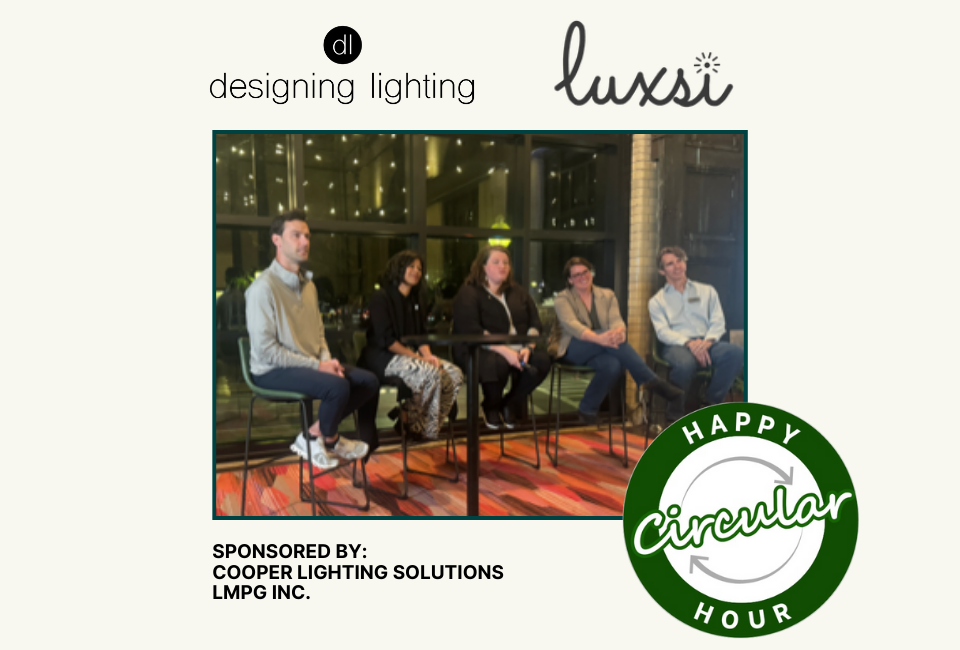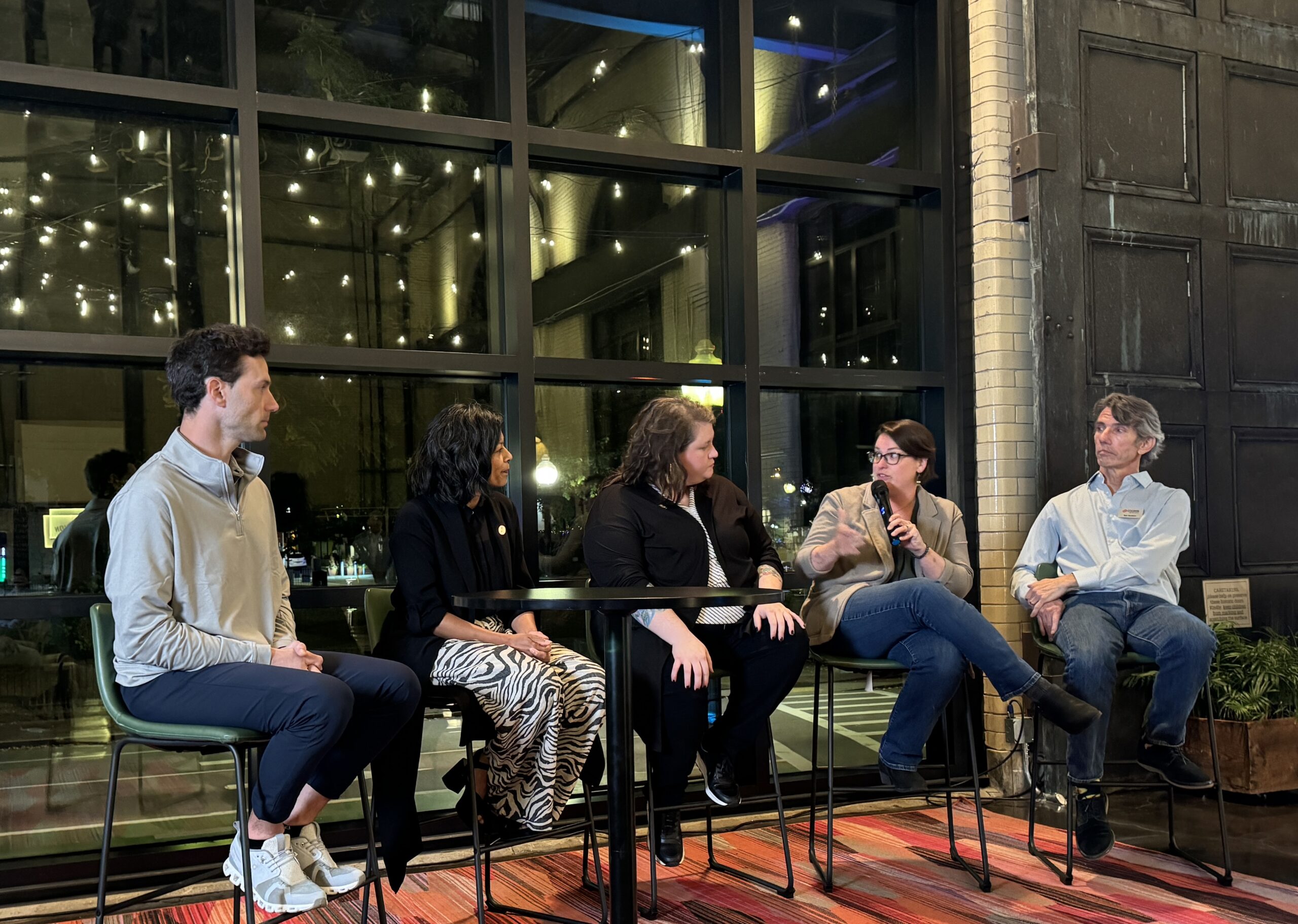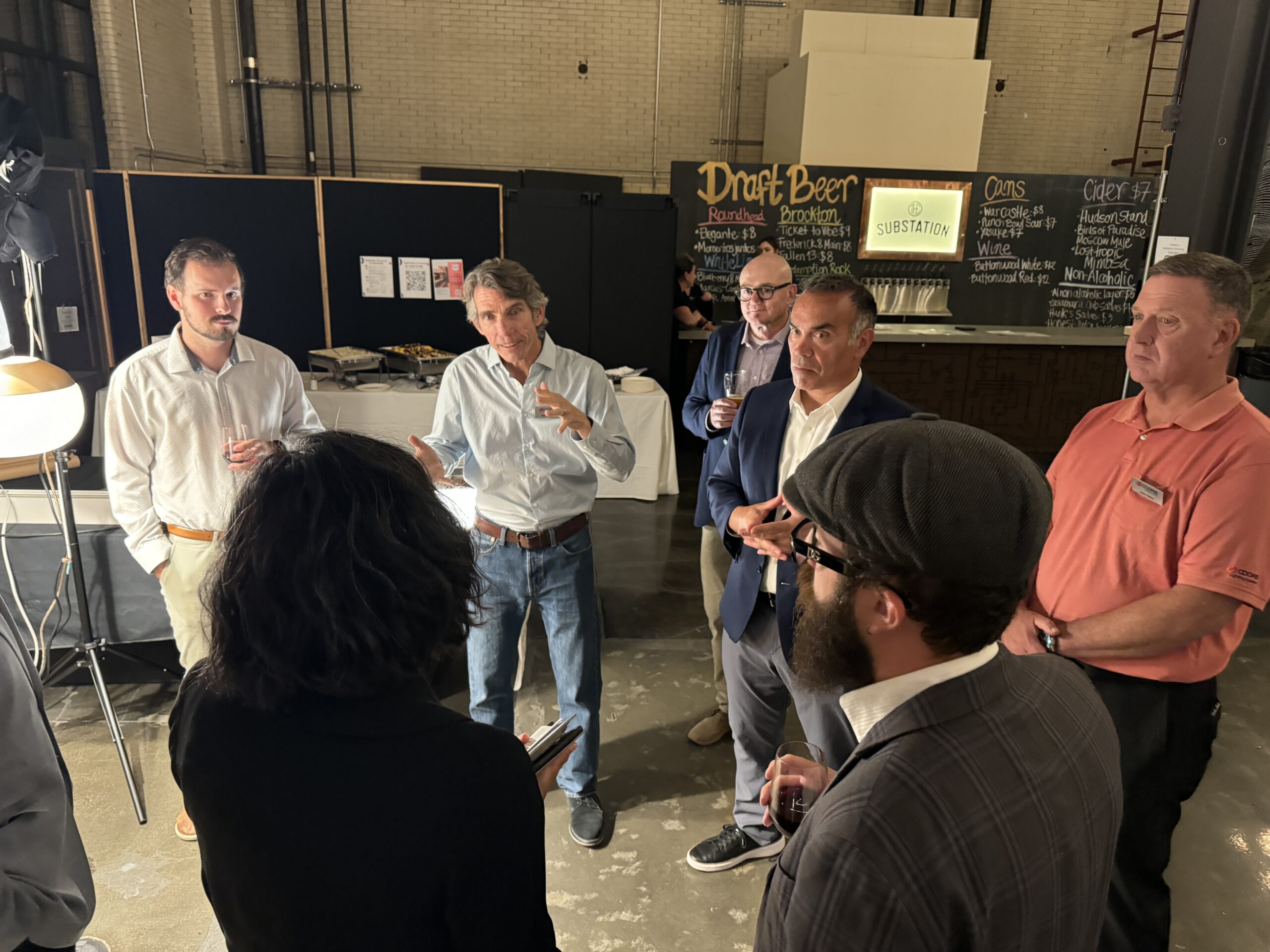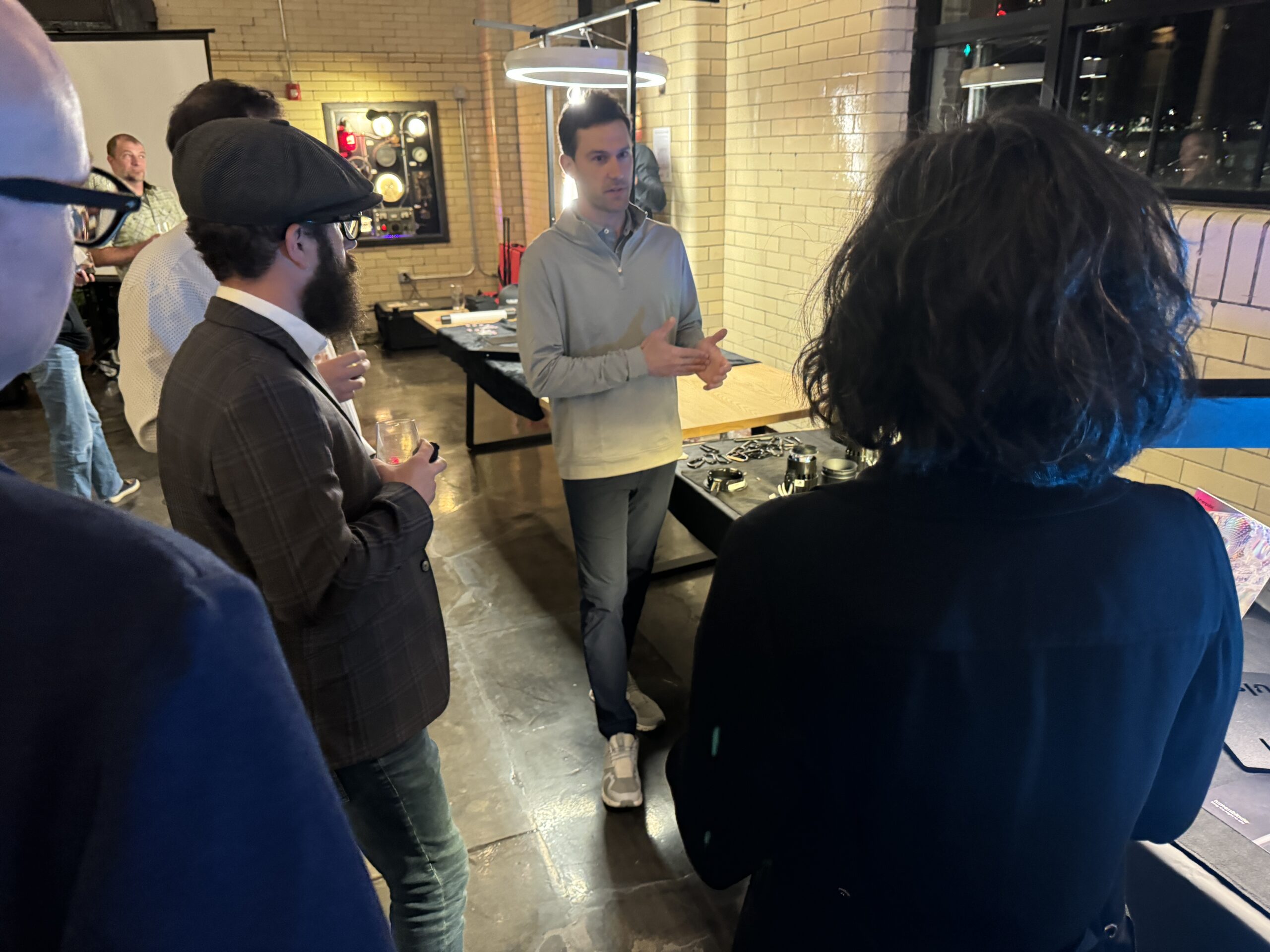The first Happy Circular Hour, hosted by Luxsi and designing lighting (dl) magazine in Boston, brought together leading voices in the lighting industry. The event focused on the growing importance of sustainability and material transparency. Sponsored by Cooper Lighting Solutions and LMPG, the event emphasized how collaboration is key to driving sustainable change.

Sara Schonour Makes a Point on Sustainability
Sara Schonour on Material Transparency
Sara Schonour from Luxsi opened the discussions. She highlighted a surge in luminaires with detailed material ingredient reporting. This trend marks a shift towards integrating lighting into Whole Building Life Cycle Assessments by mid-2024. Sara stressed the importance of community involvement. She encouraged attendees to engage with the Lighting Advocacy Letter on Mindfulmaterials.com, which has already received support from over 70 firms since last summer.
Sara also introduced the LAL Toolkit. This toolkit offers industry professionals practical resources for advocating transparency in lighting projects. It includes conversation guides and design language templates that promote sustainability in the lighting industry. By using these tools, the lighting sector can set a standard for sustainable practices across the built environment.
Leela Shanker’s Vision for Rewiring Design Practice
Leela Shanker, Sustainability Director at WAP Sustainability, presented on “Rewiring Design Practice.” She urged the lighting industry to transform fundamentally to achieve 2050 sustainability goals. Leela compared past shifts in societal light culture to the changes needed today. She highlighted the crucial roles of government, finance, and business in this transformation. Leela introduced the “Rewiring the Economy” framework, which advocates for a balanced approach to climate action, quality of life, and ecological conservation.
She also discussed recent updates to LEED Version 5, which focus on these impact areas. Leela emphasized the need for clear baselines to evaluate product impacts. She pointed out current gaps in environmental impact data. Leela advocated for lifecycle assessments (LCAs) and industry-average Environmental Product Declarations (EPDs) to identify sustainability hotspots. Through the Lighting LCA Incubator, she called on manufacturers and designers to collaborate. She urged them to address data gaps and align practices with global sustainability goals, positioning lighting as a key part of a sustainable built environment.
Brienne Willcock on Sustainability Standards
Brienne Willcock, Director of Education and Standards at IES, expanded on sustainability in lighting design and manufacturing. She emphasized three critical areas: Practice, Product, and Persuasion. Brienne advocated for a facility mindset aligned with Environmental, Social, and Governance (ESG) principles. She urged companies to commit to strong energy and waste management practices. Brienne highlighted the importance of frameworks like Net Zero, ILFI Living Building Challenge, and LEED. She encouraged companies to integrate these frameworks into their operations to cut carbon emissions and boost sustainability.
Brienne also stressed the need for a circular economy approach in product design. She emphasized sustainable sourcing, labeling, and end-of-life considerations like recyclability and modularity. Brienne introduced LP-10, a new standard to guide sustainable lighting design. This standard includes comprehensive life cycle assessments and material health evaluations. At the end of her presentation, she encouraged the audience to get involved with LP-10. She invited them to text “LP-10” to her provided cell number.

Cooper Lighting Solutions Neil Hardwick at the Table Top Displays
Hands-On Demonstrations by Industry Leaders
Panelists Mike Deree, Regional Sales Manager for the Northeast at Lumenpulse, and Neil Hardwick, Product Manager – Ametrix, iO at Cooper Lighting Solutions, also contributed. They engaged with the audience during hands-on product demonstrations before and after the panel discussion. They provided insights into their products and their role in advancing sustainable lighting solutions.

Mike Deree Shows off a few luminaires from Lumenpulse






